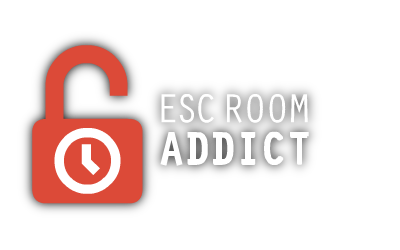The Morgan File
The Morgan File
- Played October 2020
- 3-6 hours
- 1-4 players
- CDN $22
- What People Say
The Morgan File is the first in a new series called Extraordinary Investigations from creator Rod Gillies. The idea behind this series is that you play a researcher for a top-secret government agency, tasked with seeing if you can shed any light on files from the police’s stack of unsolved cases. This first instalment is called The Morgan File, where you’re asked to look into a missing persons case involving one Louis Morgan.
The game arrives in the form of a large book (about 8½ x 11″ in size, and over 60 pages long), and the quality is uniformly excellent. The design of the book is gorgeous, consisting of full-page colour illustrations beautifully laid out. During the game you’ll also be interacting with one or more websites, each of which have also been nicely put together. In particular, one site is designed to mimic an old-school computer with a black-and-green monochrome screen and the attention to detail there is superb.
That sense of style feeds nicely into the game’s immersion, which is top-notch. The really neat thing about this game is that it involves real people, real places, and real events. The story starts in the closing months of World War 2 and continues into the post-war years. What really ups the immersion is when you look up something referenced in the game and end up spending 20 minutes reading the Wikipedia article about that particular event or person – the authenticity of it makes the game feel that much more real than even the best fictional story. Of course, the author has very lightly pencilled in a few additional flourishes, and one section is a bit more fictionalized than the rest, but the way the game ties together real people and places is something we simply haven’t seen before.
Now that reference to Wikipedia betrays a lot of what you’ll be doing in this game – as is perhaps appropriate for a series called “Extraordinary Investigations”, a lot of what you’ll be doing in this game is investigating, mostly with the help of tools such as Google and Wikipedia. (As such, make sure you have a computing device handy when you’re starting out). There are mixed in a decent number of puzzles as well, mostly involving codes and ciphers, but the emphasis here is on investigating, looking up old maps and news articles and newsreels, and piecing together connections between the various parts. Players expecting simply one puzzle after another may find this game a little lacking; a lot of your enjoyment of this game will probably hinge on whether the previous description sounds appealing to you.
Overall though, we really enjoyed this game. The way the game connects together real people and places really makes it come alive in a way few others do – you get the feeling that you’re not just playing a game, but uncovering real historical secrets. Hard-core puzzle fanatics will probably find the puzzles a little light, but if you enjoy getting lost in a rabbit hole of Wikipedia articles about World War 2 and Cold War plots and mysteries, then this is definitely the game for you. Highly recommended.
Note that this game plays very well solo, where you simply play through the game at your own pace. If playing in a group, we’d recommend keeping it to a small group and making sure you have a copy of the book for every two players (unless you’re really, really, really good at sharing). The game is split into five chapters (plus one bonus chapter for those who like a challenge) and each chapter will likely take around 30 minutes to an hour depending on whether you choose to speed through it or take your time and read up on the people and places mentioned.
Final Verdict: | 7.9/10 |





